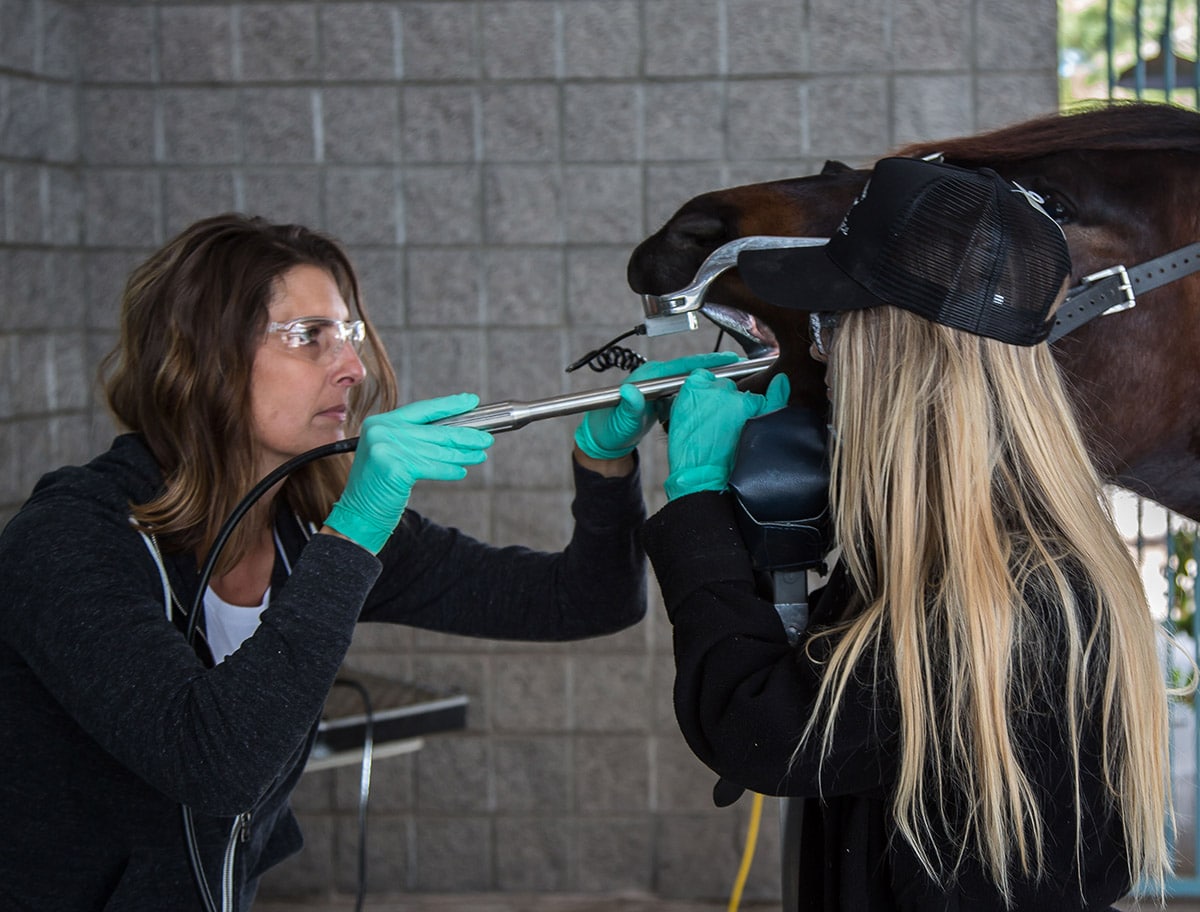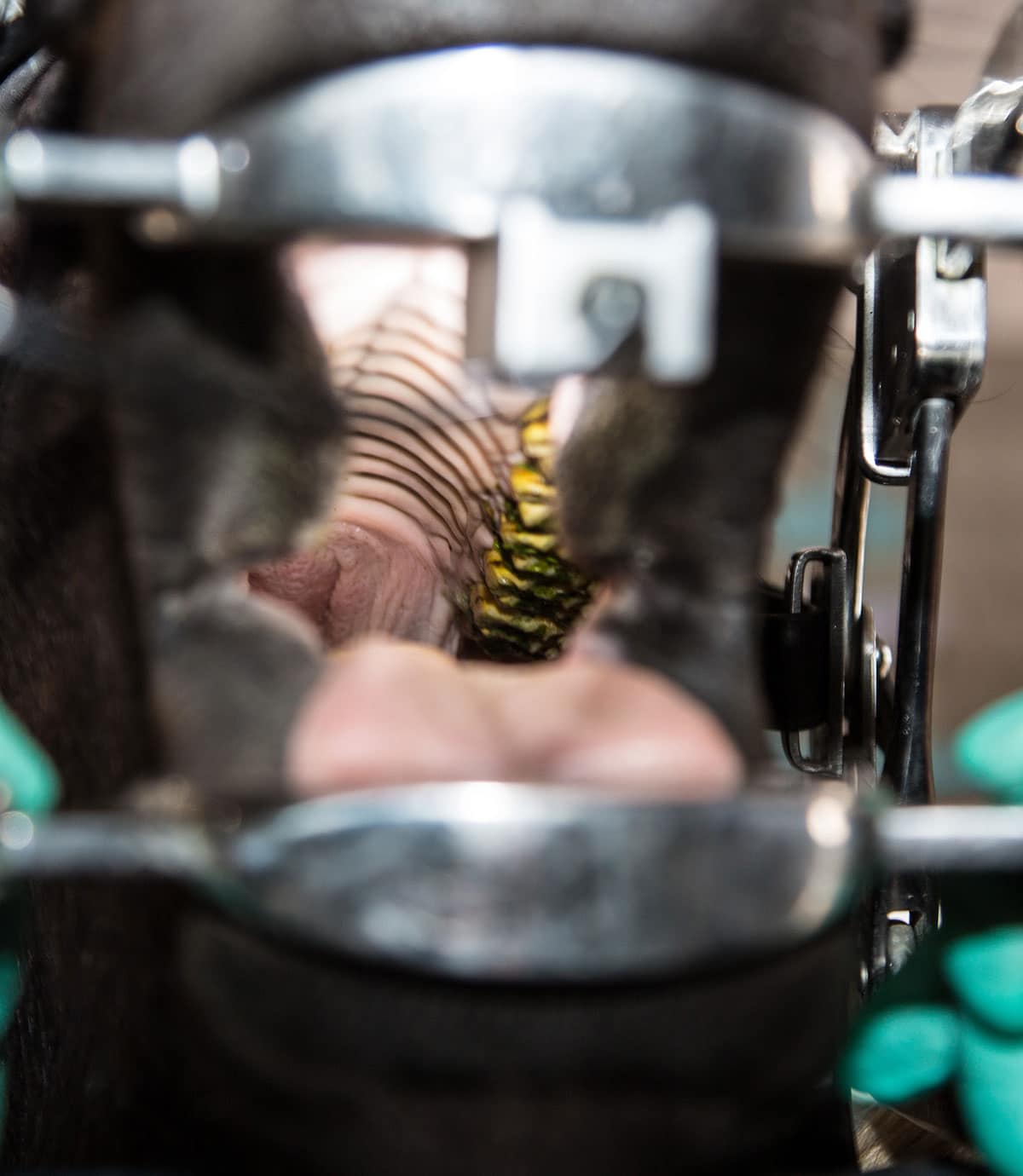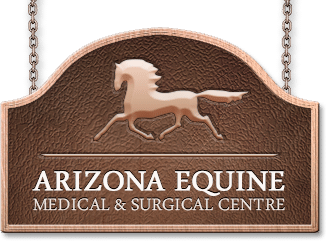
Dental Services
The adult horse has approximately 36 to 44 teeth. The number of teeth can be dependent on the breed of the horse and sex. The horse owner can easily lift their horse’s lips and visualize the 12 incisors and 4 canine teeth (if present). The majority of the premolars and molars cannot be examined without a speculum.
Dentistry is a critical facet of your horse’s overall health and quality of life. Routine floating performed by an experienced equine veterinarian can alleviate the pain of sharp dental points, other dental maladies, and may prevent future dental problems.
The veterinarians at Arizona Equine utilize a full mouth speculum; a bight focused light, intravenous sedation, motorized and hand floats. We often use a dental mirror and periodontal probe. Yearly dental exams and floating can identify tumors, cheek ulcers, loose/cracked teeth, retained caps and decaying teeth.
What are some of the signs that your horse is experiencing dental problems? Signs include poor performance, weight loss, head tossing, inability to collect, stay collected or hold the correct lead, dropping/quidding feed, reluctance to turn to one side or another, and opening their mouth while carrying the bit.
Arizona Equine veterinarians can perform dentals both in the field and in the hospital. The doctors are experienced in routine floating and equilibration. Corrective work on wave, shear, hooks, ramps, parrot mouth, and all dental abnormalities are routinely addressed. Our doctors employ local anesthesia, nerve blocks, anti-inflammatories, and sedation for pain management.
Routine dental care provides enormous benefits to your horse. The Arizona Equine veterinarians have extensive training necessary to properly evaluate patients for concurrent disease processes. Some of these conditions include sinus infections, Cushing’s disease, diabetes-like syndrome, kidney disease, liver disease, and heart disease. There is much more to dentistry than just teeth! Remember that all horses need regular dental care regardless of whether or not they are demonstrating signs.
- Prepurchase oral exams
- Routine floating and equilibration
- Wolf tooth removal
- Geriatric dentistry
- Dental radiographs
- Correction of wave/shear/step mouths, hooks, periodontal disease
- Sinus surgery related to dental abnormalities
- Bit seat
- Tooth extraction
- Fractured teeth


